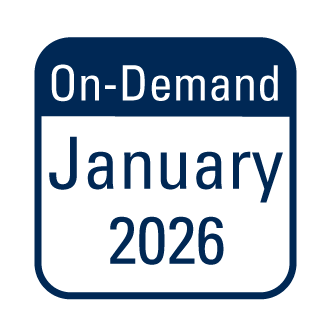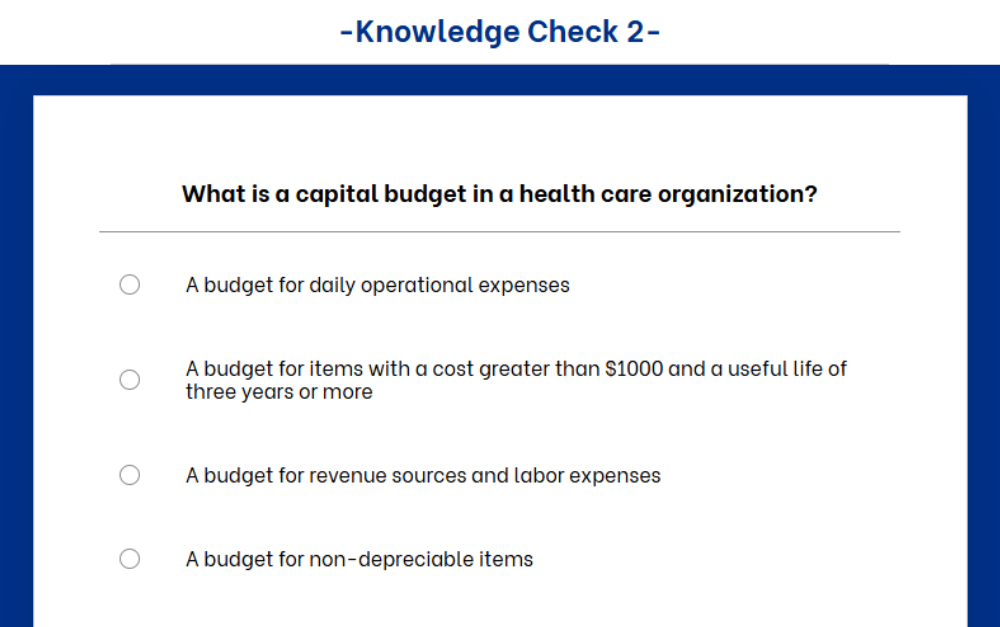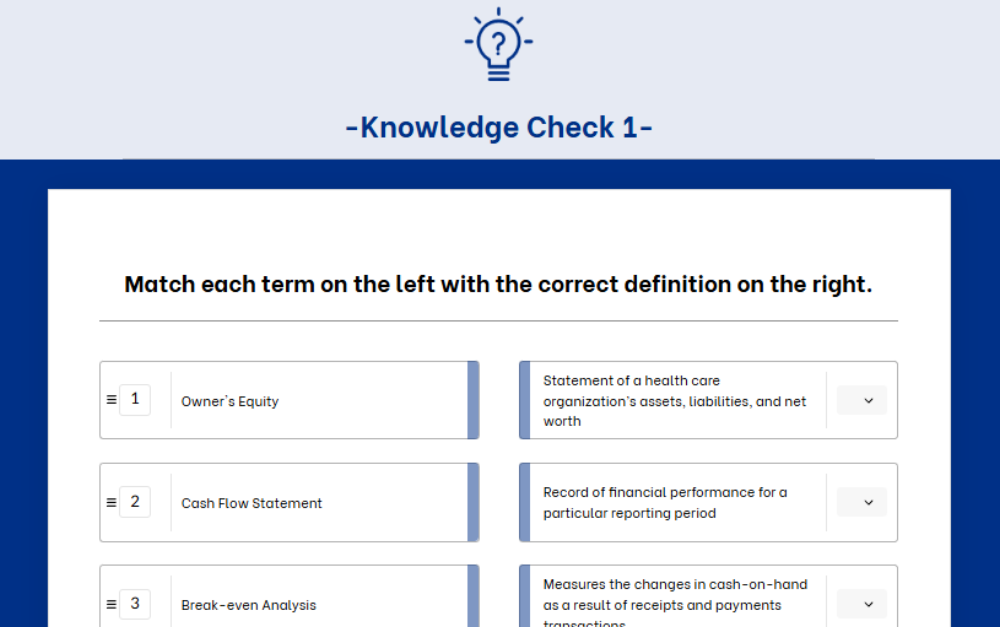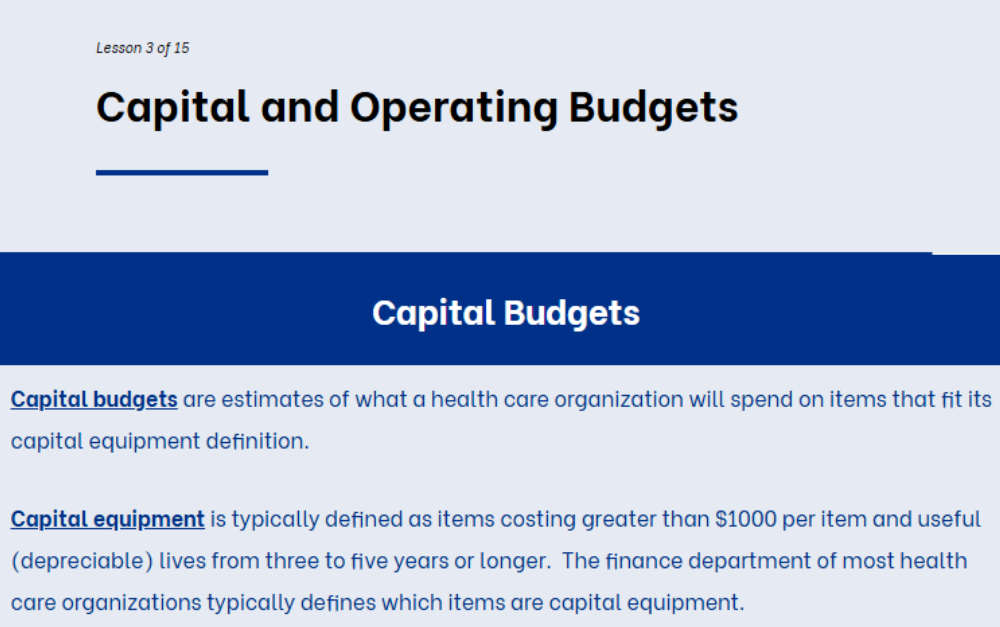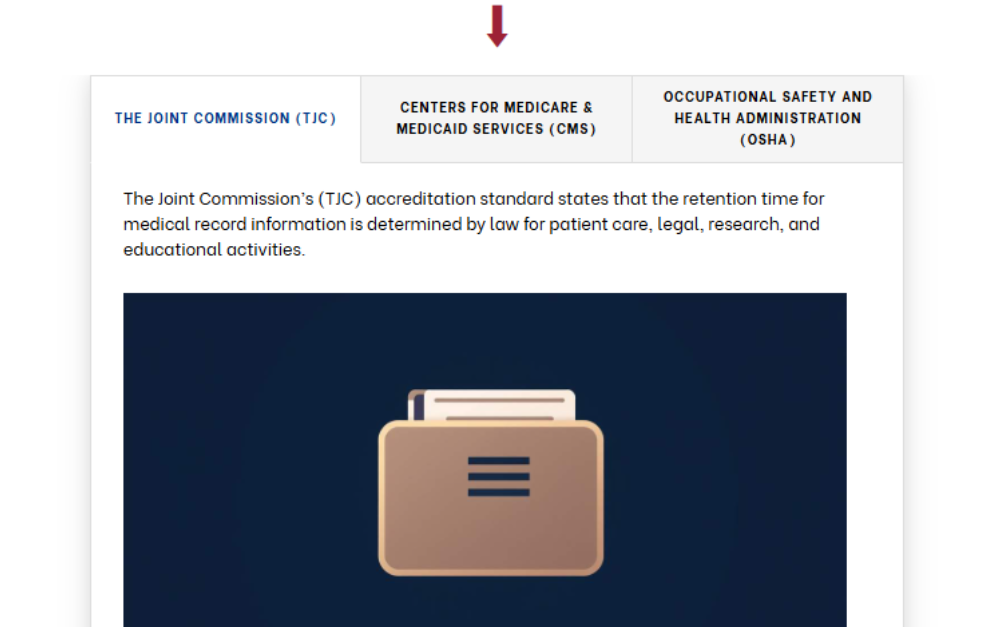AHRMM Academy: Finance and Health Care Supply Chain
Effective financial management is the back bone of any successful health care organization. Understanding the budgeting process is vital, as it involves identifying income and expenses, setting financial goals, categorizing expenses, monitoring spending and making necessary adjustments based on variances and new financial data.
Explore topics such as records retention, supply chain collaboration, revenue cycle impact, cost savings programs and government regulations, to make informed decisions, optimize resources and ensure compliance, ultimately enhancing your organization's financial health and operational efficiency. On-Demand access begins January 12.
Learning Objectives
- Identify key components of your organization’s budgeting process and demonstrate how to analyze pricing, usage data, budget variances, and non-labor expenses to support financial decision-making.
- Analyze how managing fixed non-movable equipment and grouping similar capital equipment by type or manufacturer can lead to cost savings.
- Explain the need for records retention policies and identify the various document retention and filing systems in accordance with regulatory requirements.
- Discuss how Supply Chain can work effectively with finance departments.
- Describe the impact of reimbursement and payer models on a health care organization’s revenue cycle.
- List the key components of developing and managing cost savings programs.
- Recognize the importance and significance of government regulations to supply chain operations and the value of using financial benchmarks.
New eLearning Experience
Discover the interactive instructional modalities that can enhance your understanding and make learning more enjoyable.
Start Your AHRMM Academy Journey
Register now for the Finance and Health Care Supply Chain cohort! Expand your knowledge, demonstrate proficiencies and prepare to propel your career forward.



